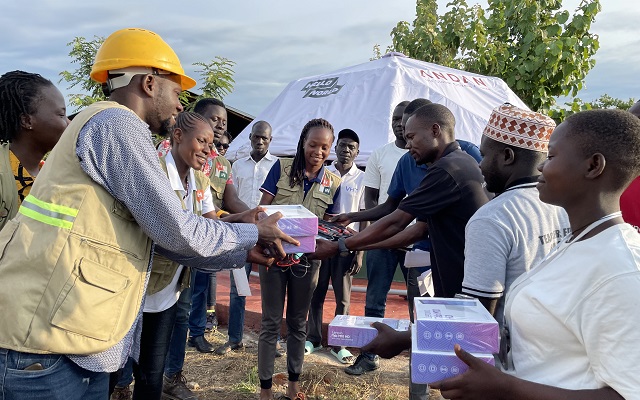
Kampala, Uganda | THE INDEPENDENT | In an era dominated by digital advancements, Hello World, a non-profit organization providing solar-powered, internet-enabled education hubs in Uganda, is now taking new strides to close the digital divide and empower communities.
Founder and CEO Katrin McMillan says extending internet access to youth, women, and girls, enable them to access knowledge, education, advocate for their rights, and connect with the world.
The global digital landscape, however, reveals a stark reality, a staggering 4.1 billion people lack internet access, with 90% residing in developing countries, according to the International Telecommunication Union (ITU).
This glaring gap presents a unique opportunity for Internet Service Providers (ISPs) to not only expand their customer base but also contribute to local economies, education, and narrow the digital divide.
For instance, a country like Uganda, internet penetration stands at slightly above 50%, according to the Uganda Communications Commission, demonstrating a huge potential for internet service providers to provide internet services to the underserved communities.
In Nigeria, as of January 2023, it had 122.5 million internet users, reflecting an internet penetration rate of 55.4%, as reported by the ITU.
The potential impact of increased internet access in Nigeria is profound with e-commerce is set to thrive, with a market worth projected to reach $20 billion USD by 2025.
McMillan says education sector also witnesses a significant boost, with over 10 million students enrolled in online learning programs. She says healthcare sector also experienced enhanced accessibility through over 1,000 telemedicine clinics operating in the country.
However, extending internet access to remote areas poses challenges such as infrastructure limitations, device accessibility, and cultural barriers. Despite these obstacles, the World Bank suggests that internet access can increase a country’s Gross Domestic Product (GDP) by up to 1.5%.
As such, Hello World, in collaboration with ISPs, envisions overcoming these challenges by establishing solar-powered internet kiosks in hard-to-reach communities.
McMillan says ISPs have the opportunity to collaborate further with NGOs and local communities to develop culturally relevant content and services. She says Hello Hubs, for example, offer programs like life skills training, computer literacy, numeracy, and literacy, contributing to bridging the education gap.
The collaborative efforts between ISPs, governments, NGOs, and local communities hold the potential to transform the internet into a powerful tool for social and economic development.
“Providing internet access to underserved communities is a complex challenge, but it is a challenge worth undertaking. ISPs stand at the forefront, not only expanding their customer base but also making a positive impact on society,” McMillan says adding that through innovative solutions and collaborative endeavors, the vision of a digitally inclusive world is within reach.
To date, Hello World has set up dozens of education hubs across Uganda including in refugee settlement camps to boost learner access to education digitally.


